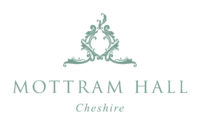
The UK government has released £2.2 billion to help small businesses through the current lockdown restrictions, with grants to be delivered by local authorities in England.
Businesses will benefit from two grant schemes: one for businesses that have had to close, and another scheme for further business support as a result of the coronavirus pandemic, helping support people’s jobs and livelihoods and protect communities.
Money was transferred to local councils on Friday 13th November, and businesses should receive funds to cover the four-week period of national restrictions in the coming days. Businesses in Cheshire East can check the council’s website for details.
Business Secretary, Alok Sharma said:
We know that this is a really tough time for businesses across the country, which is why we are continuing to deliver a wide-ranging package of urgent support.
This much-needed cash will help to sustain businesses, protect jobs and keep communities ticking as we continue to tackle the virus in the coming weeks.
Minister for High Streets, Kelly Tolhurst MP said:
This funding will help to protect jobs and give businesses on the high street added security at this time. The ban on commercial evictions until the end of the year provides landlords and tenants with an opportunity to reach an agreement which can help businesses to continue operating.
The two grant schemes available for businesses affected by English lockdown measures and local restrictions are:
The Local Restrictions Support Grants, for businesses which have had to close or have been severely impacted by local restrictions (hospitality, leisure and non-essential retail sectors):
- business owners will receive £1,334 per 4 weeks if they have a rateable value below £15,000
- they will receive £2,000 per 4 weeks if they have a rateable value between £15,000 and £51,000
- they will receive £3,000 per 4 weeks if they have a rateable value above £51,000
The Additional Restrictions Grant, provided by councils on a discretionary basis.
Local authorities will receive a sum of money equivalent to £20 per head of their local population to distribute to businesses which have been severely impacted by restrictions. For example, a council covering an area with a population of 100,000 would receive £2 million for this purpose. Those likely to be in receipt of these grants include large employers with significant fixed costs such as seaside attractions or local manufacturers, as well as sole traders, tour operators and market traders who do not have a rateable value. This includes businesses like pubs not serving substantial meals, betting shops, arcades and soft play centres in areas like Greater Manchester.




















 Small businesses received £21.3 billion in COVID-19 support from local authority grants
Small businesses received £21.3 billion in COVID-19 support from local authority grants  Two year extension announced for Covid Recovery Loan scheme
Two year extension announced for Covid Recovery Loan scheme  Research finds Covid-19 has not fundamentally changed the UK labour market
Research finds Covid-19 has not fundamentally changed the UK labour market